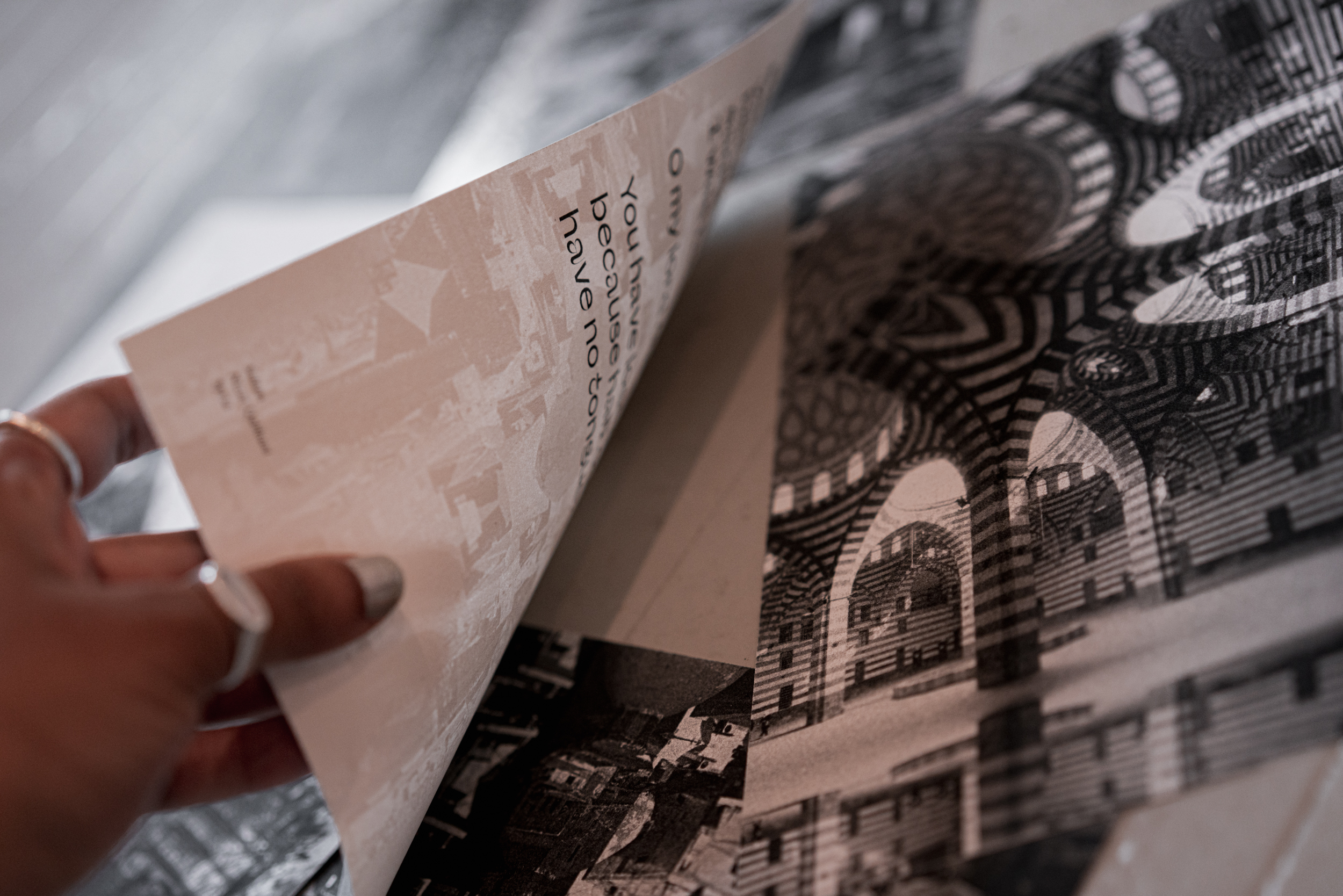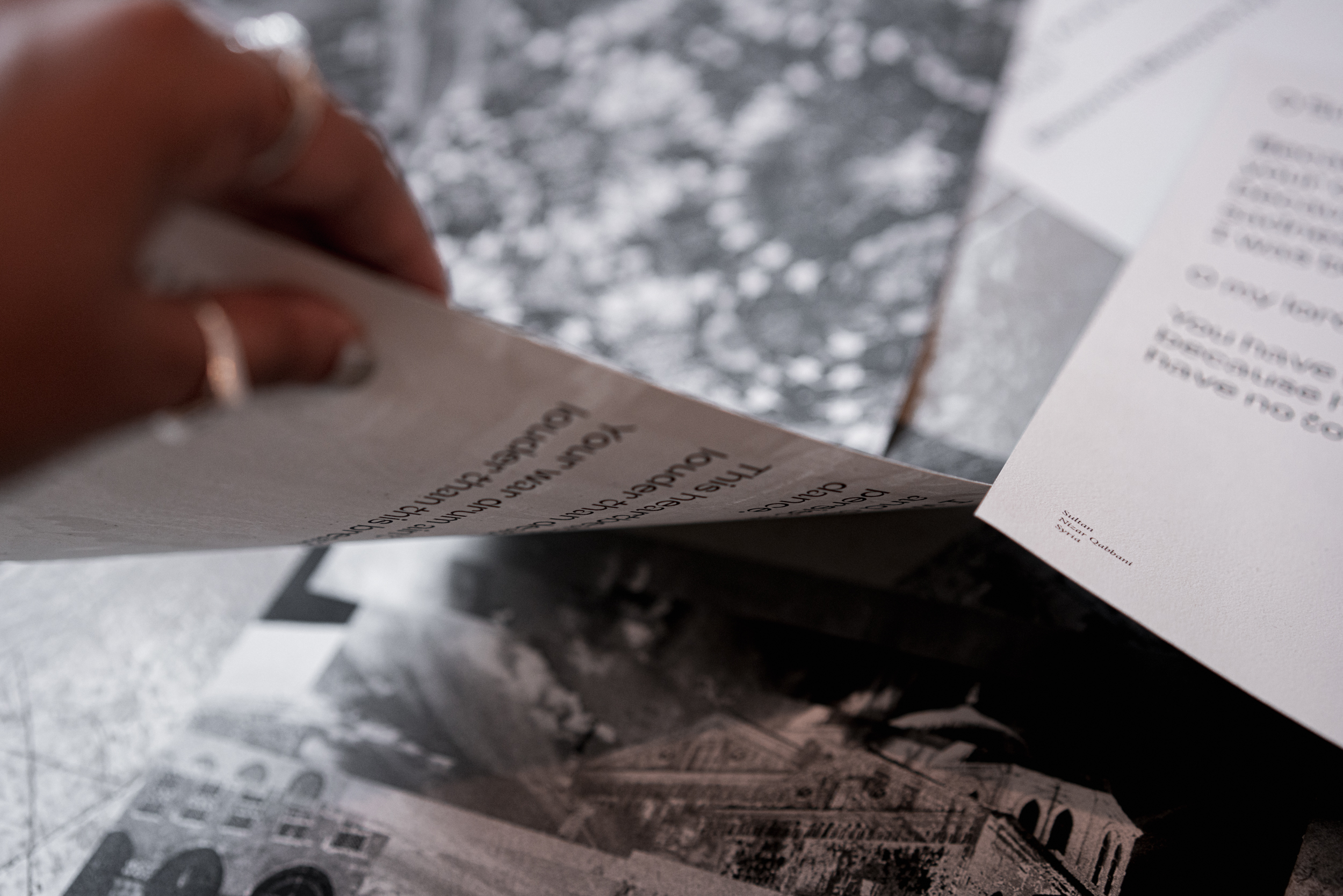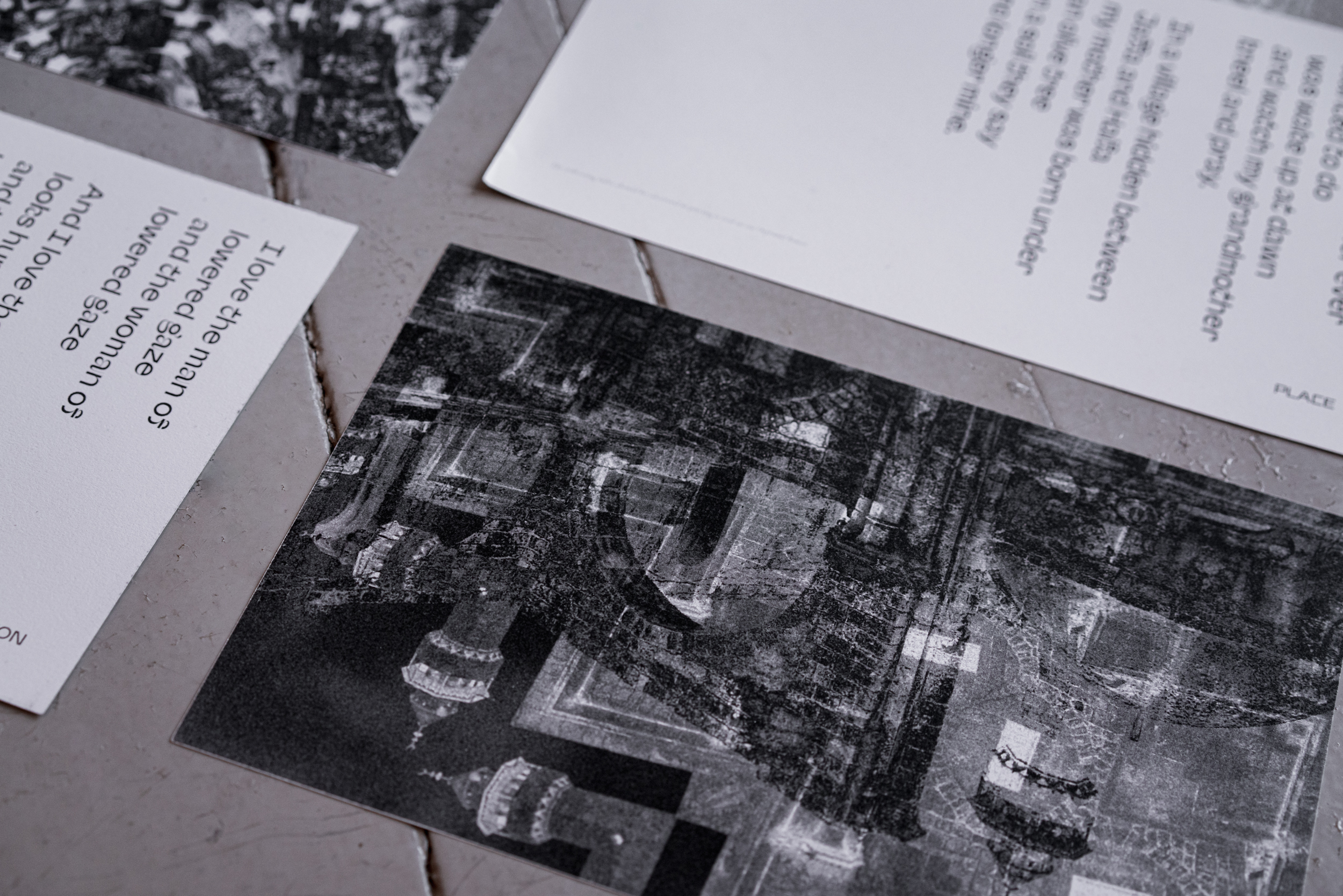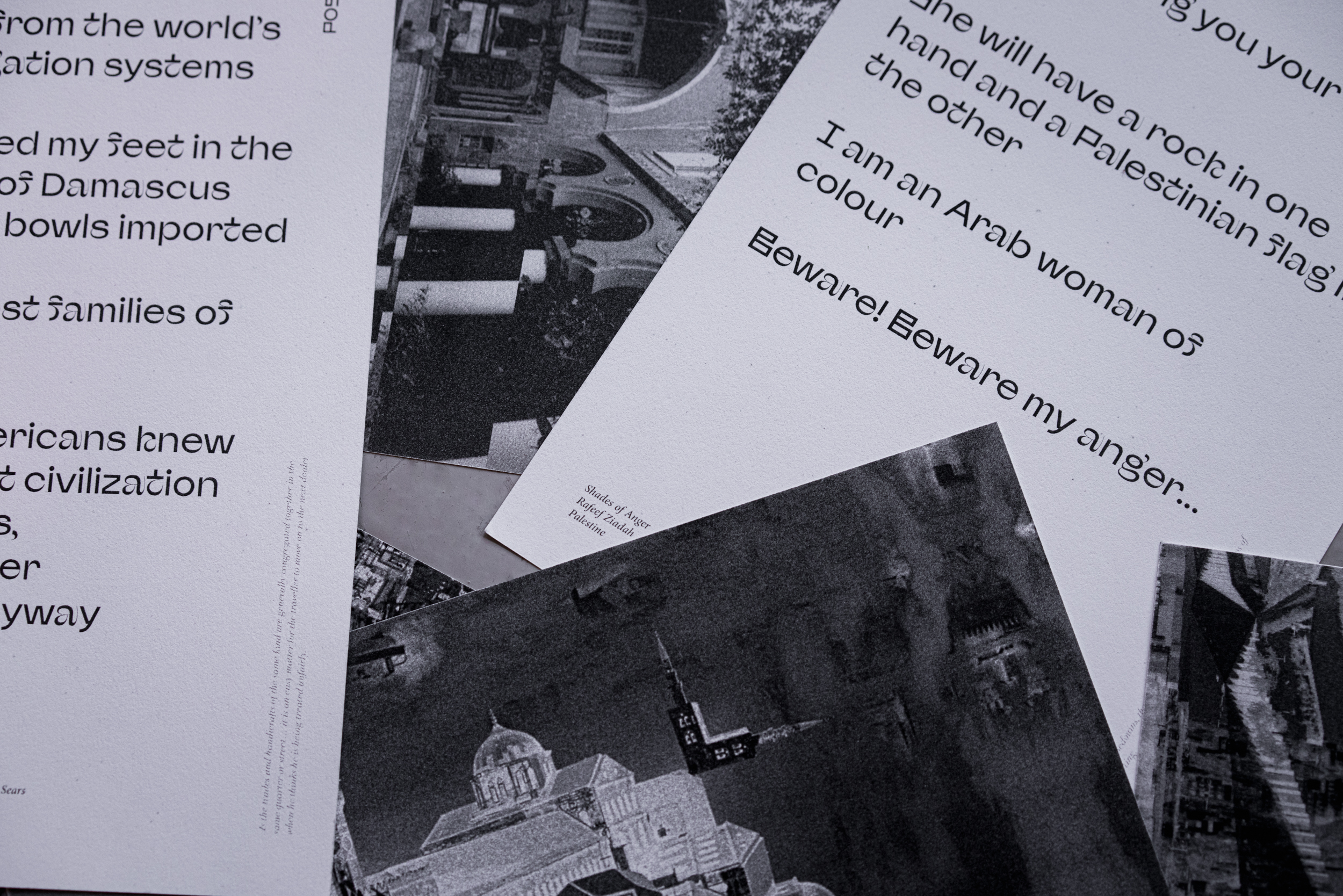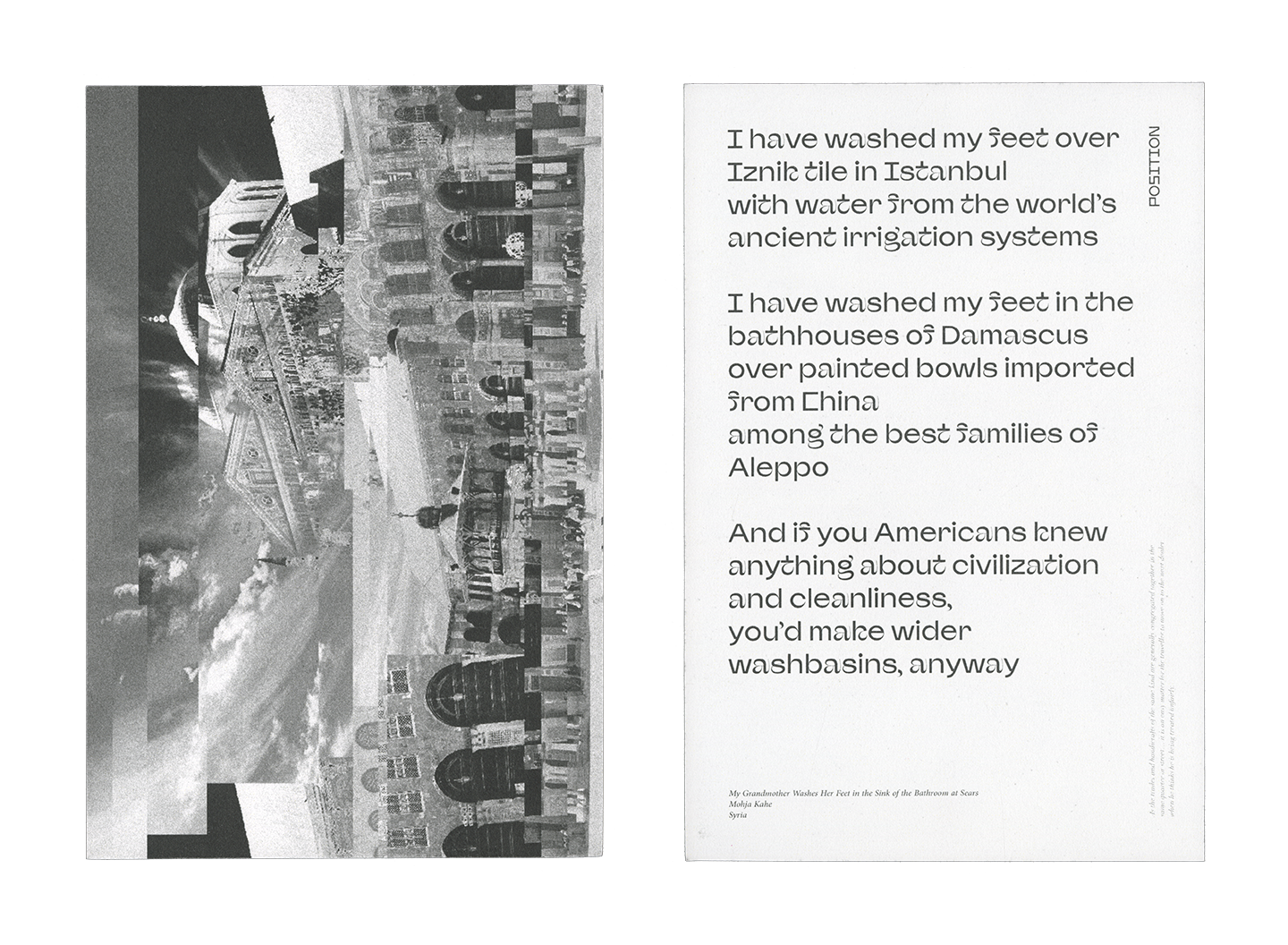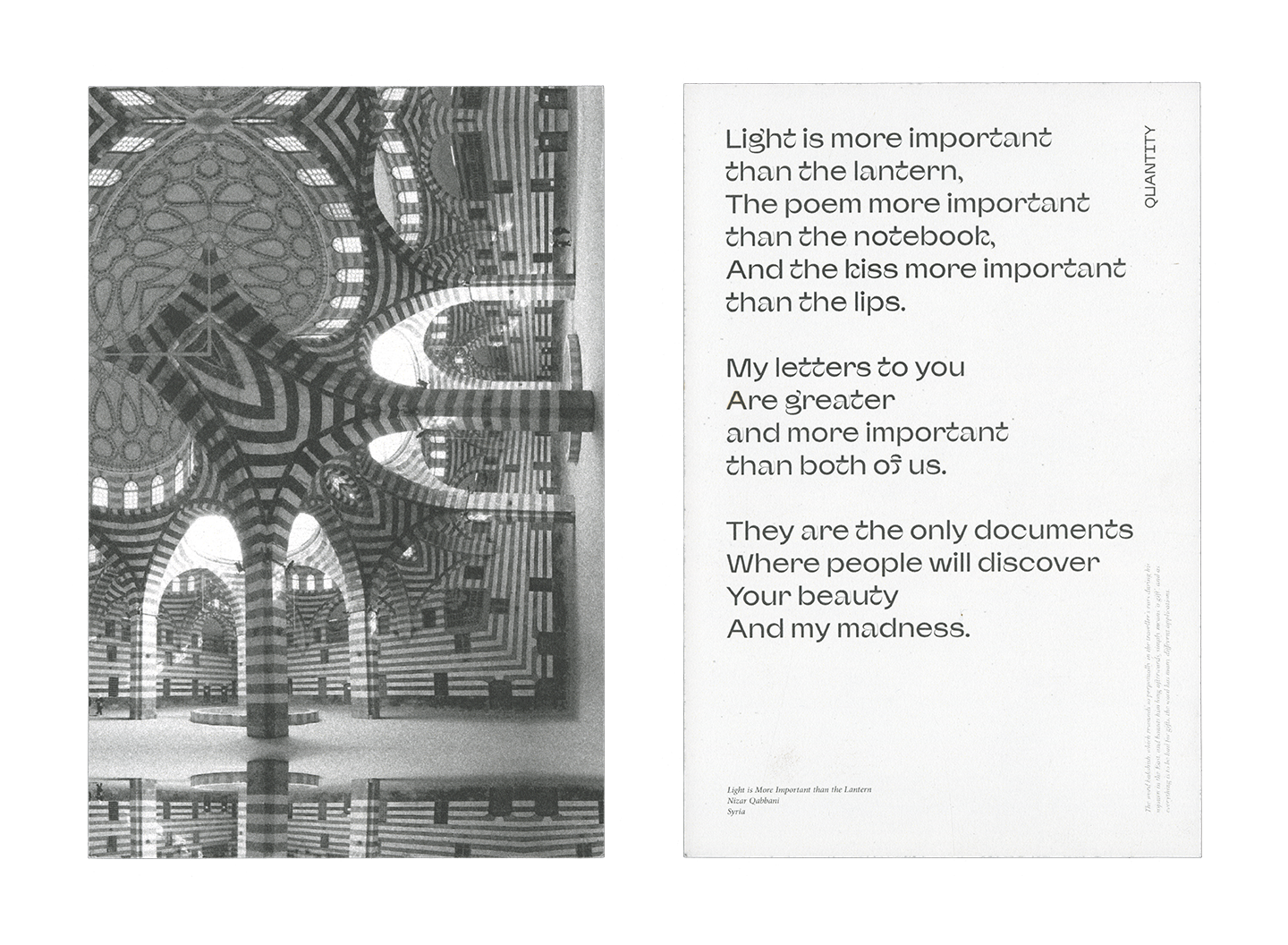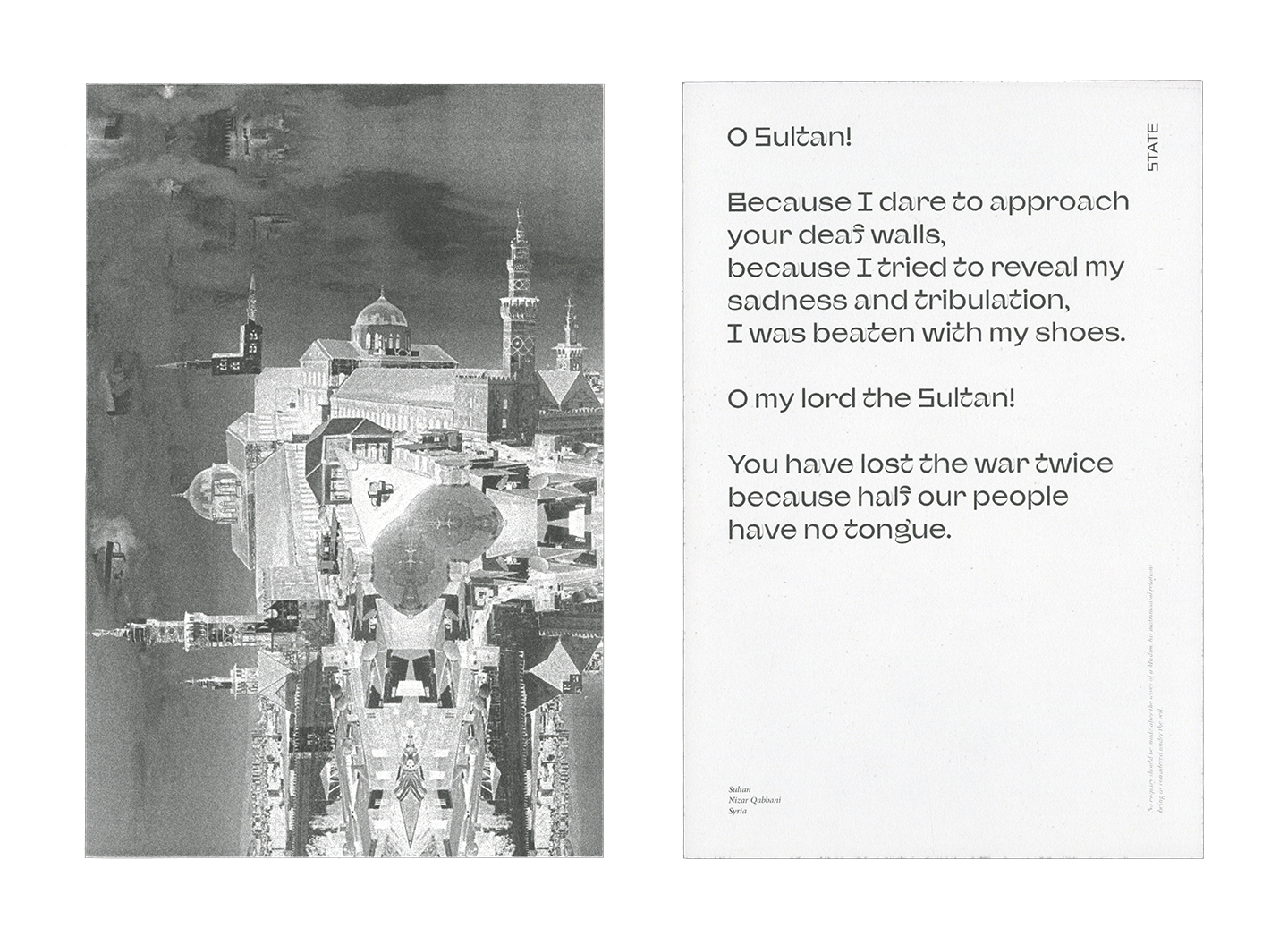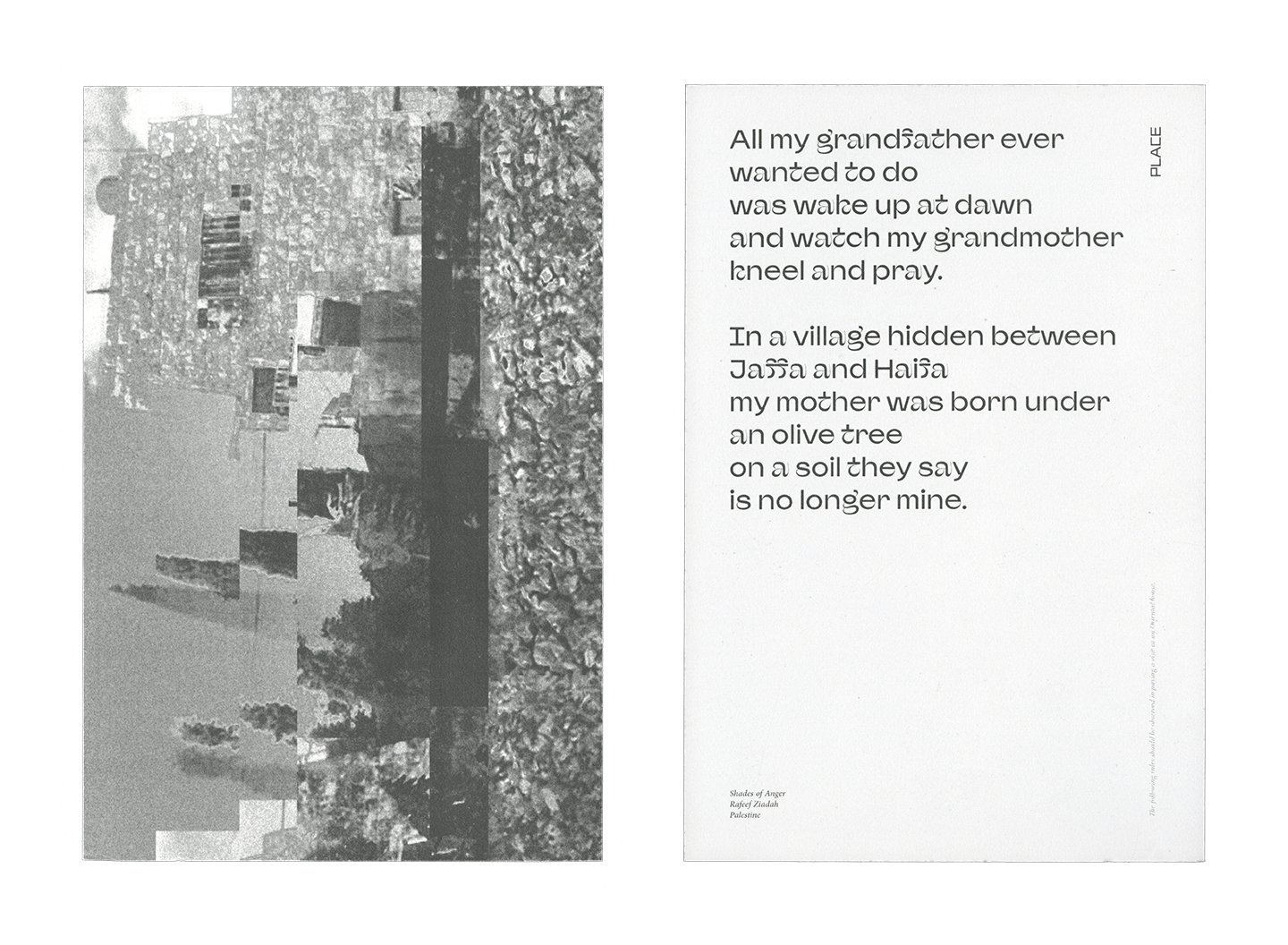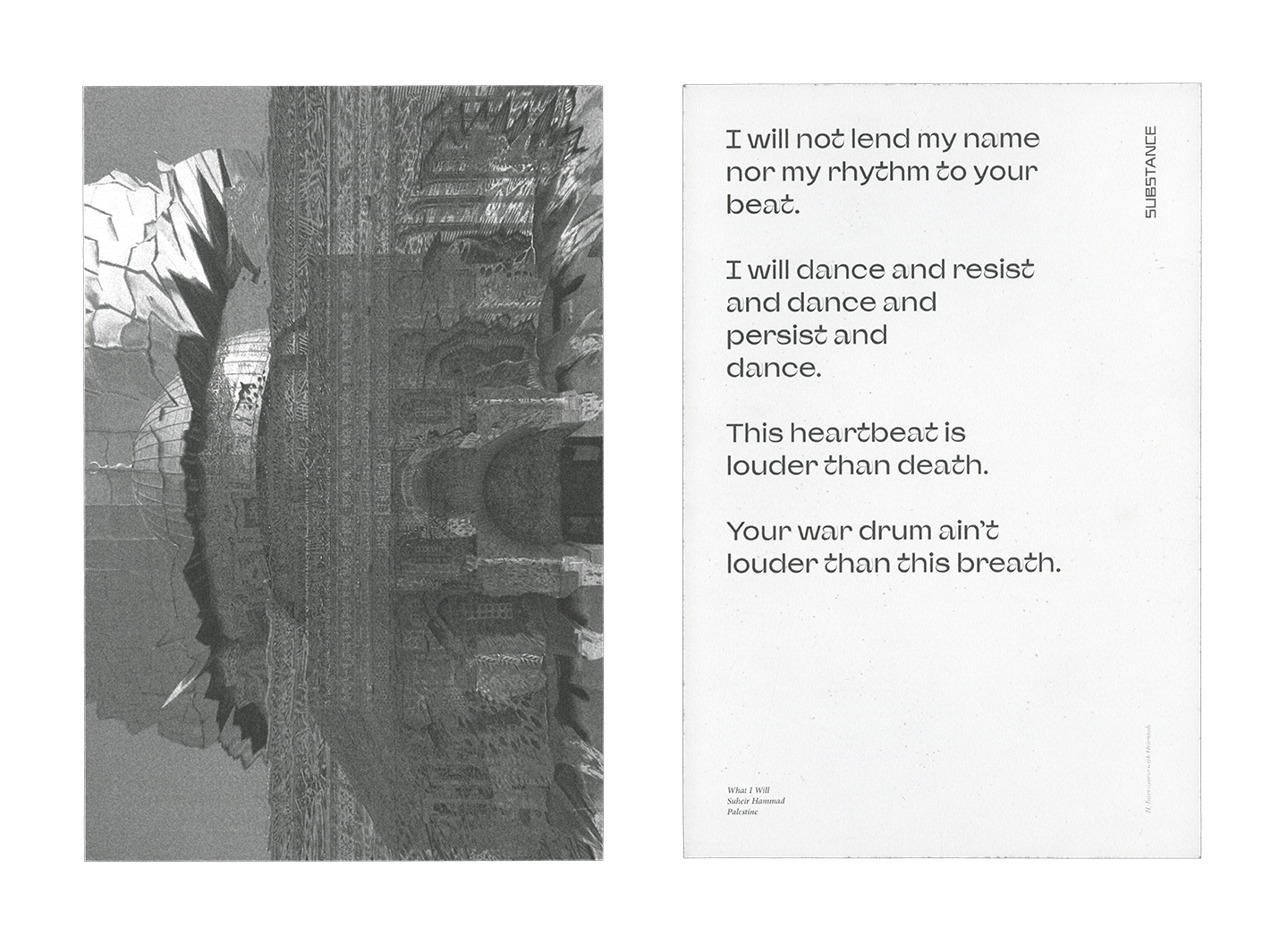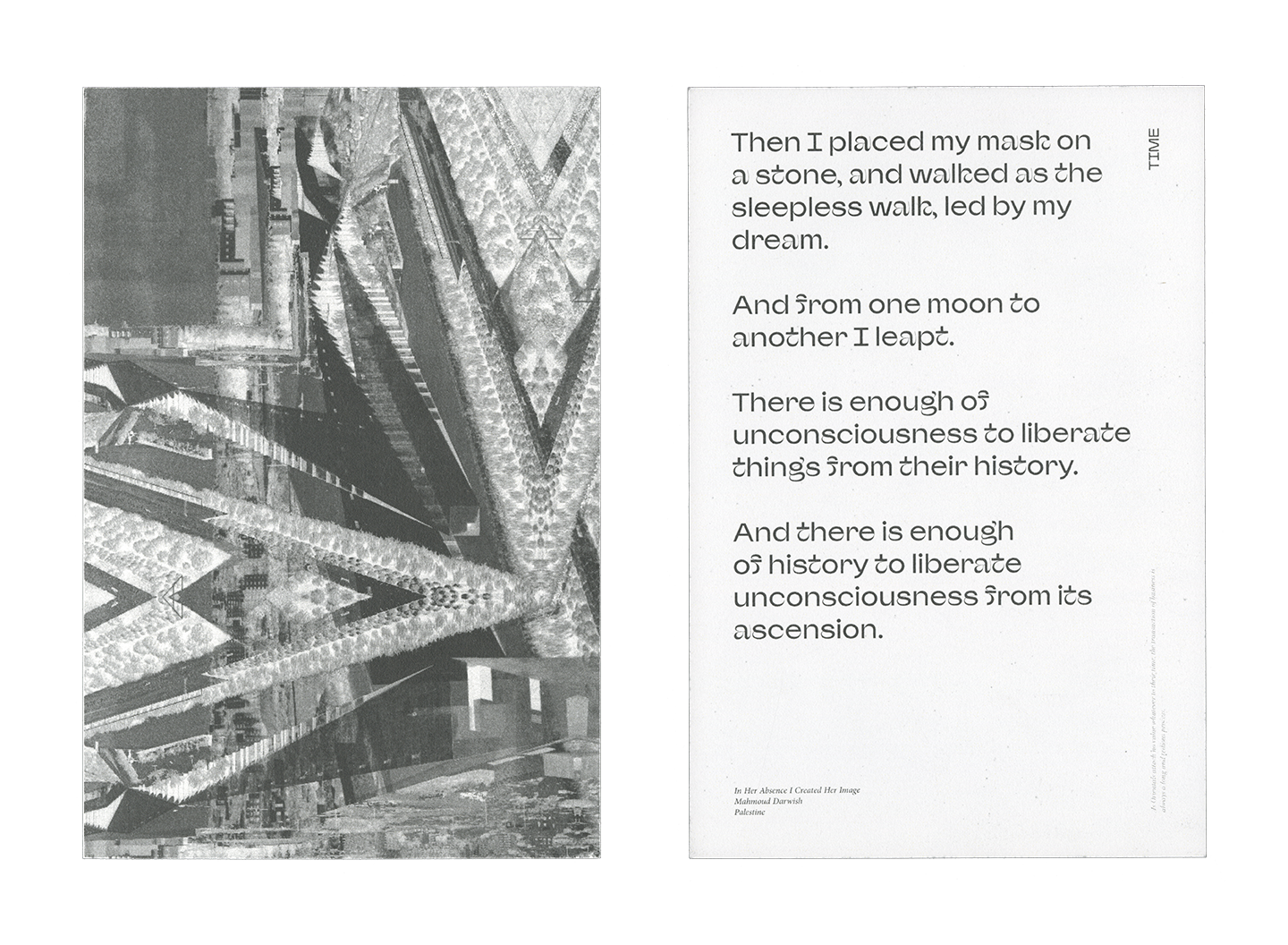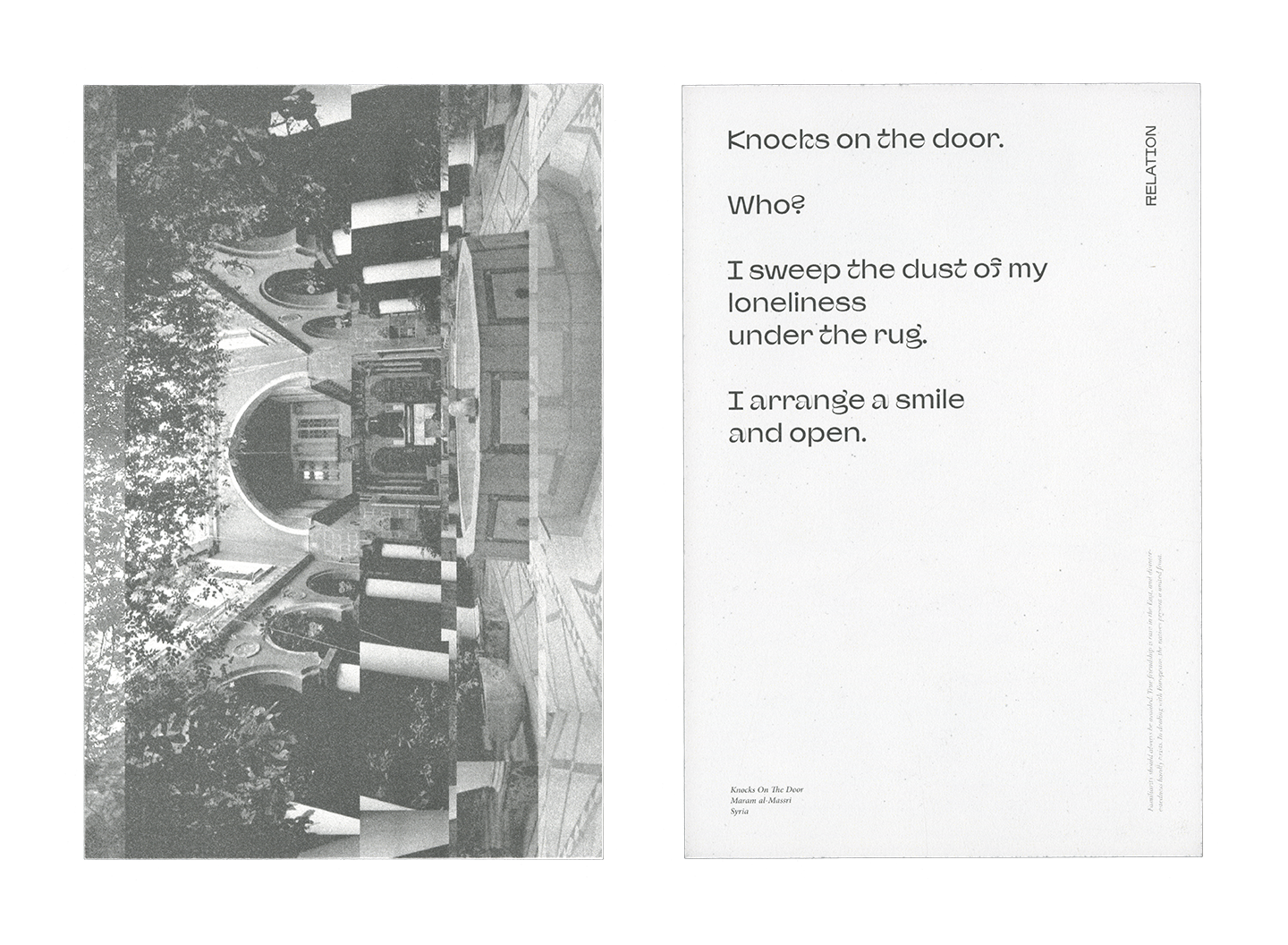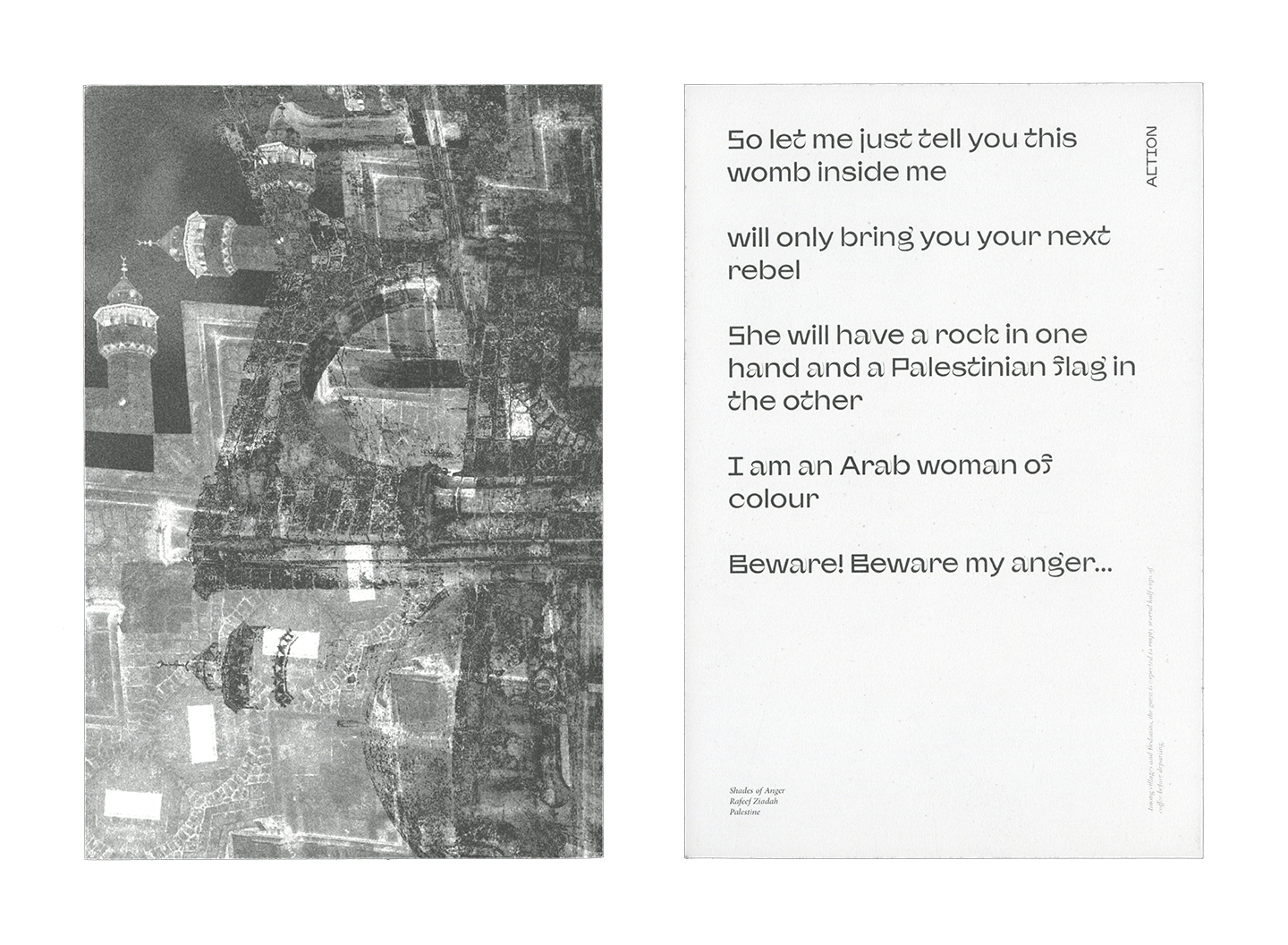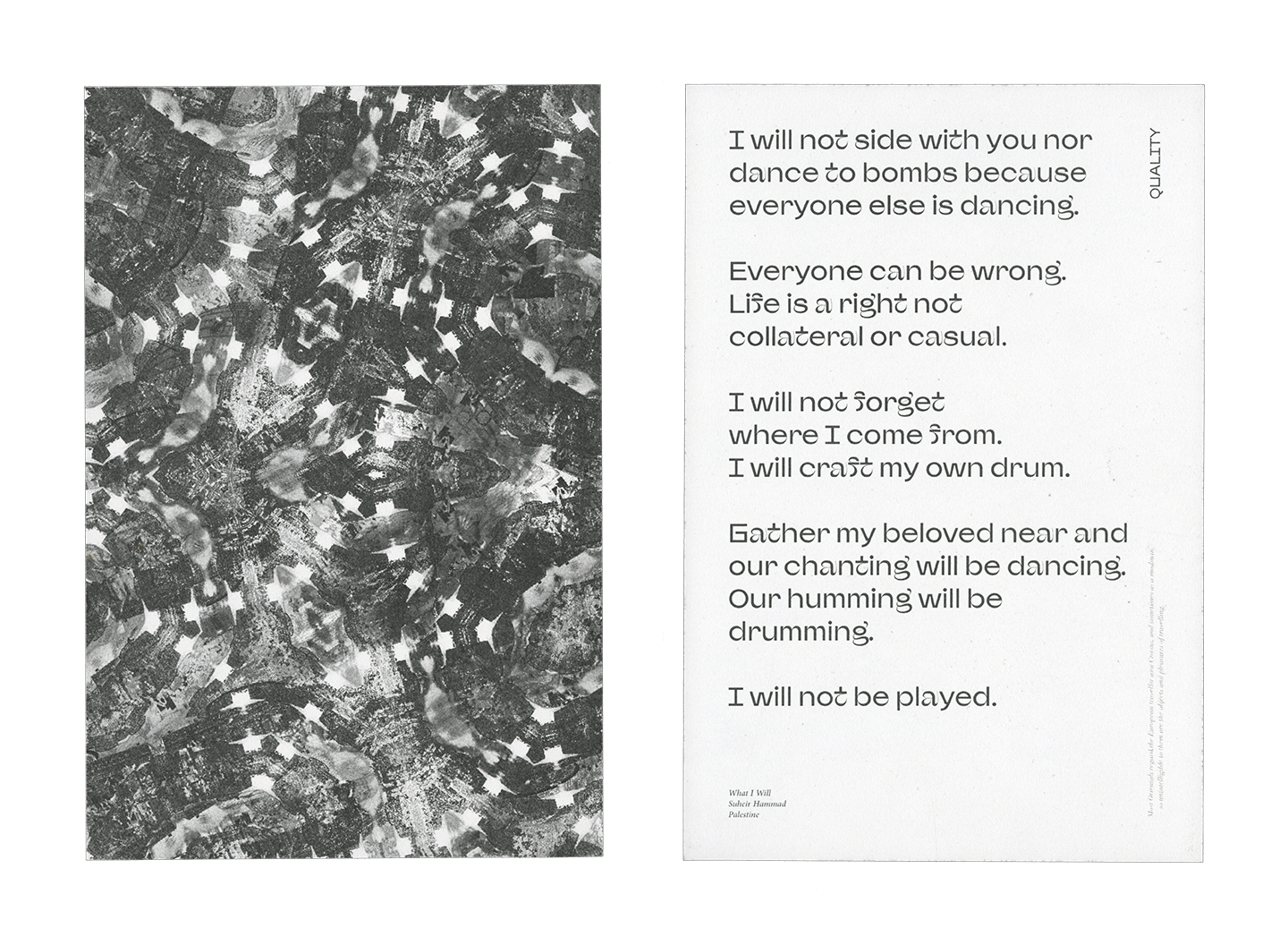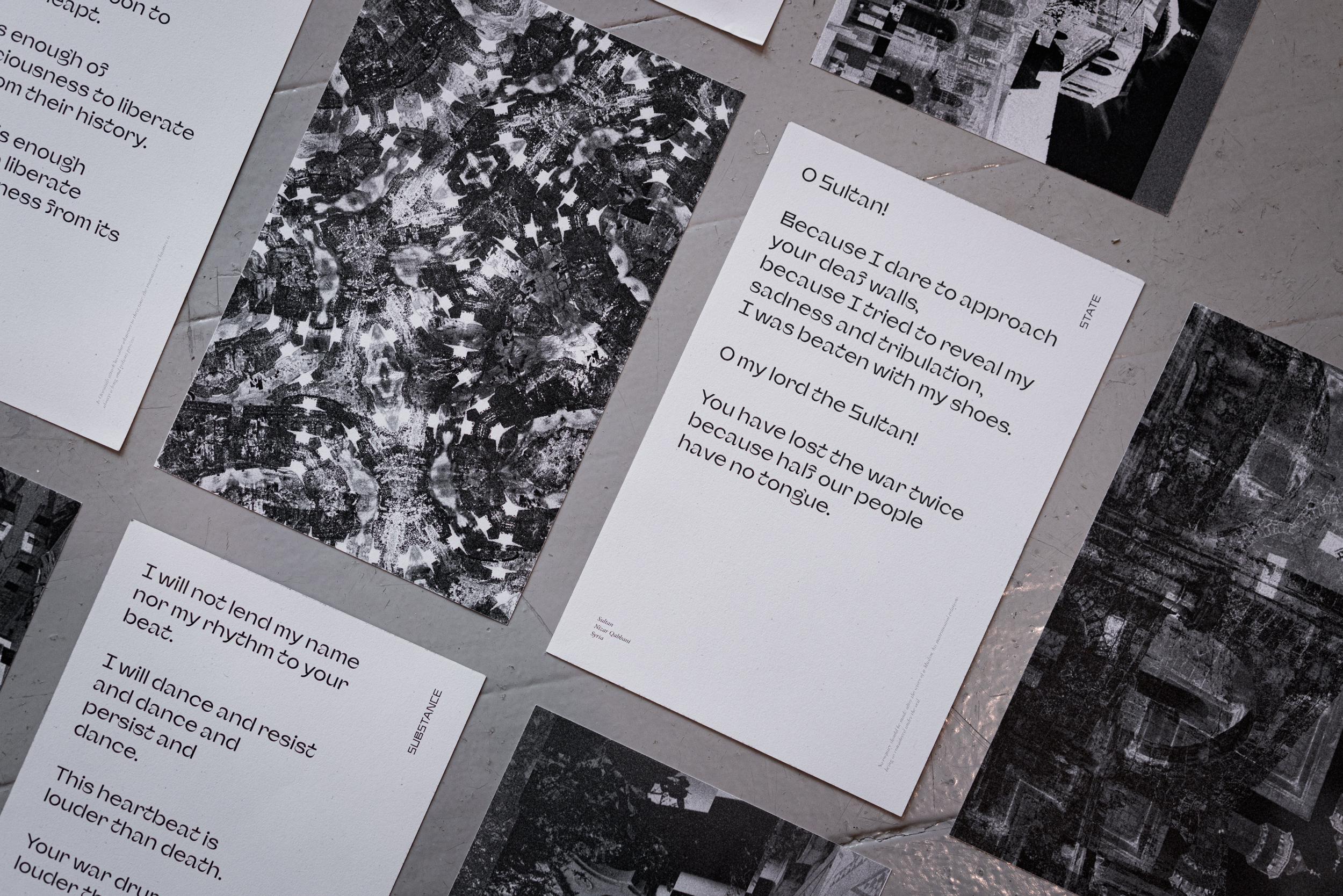
[DIS]ORIENT
In response to the Orientalist artifact, Baedeker’s Travel Guide to Palestine and Syria, this project investigates who has a voice? Who is welcome? And who is allowed to invite anyone anywhere?
This book is discussed as a “portal to the past” and an artifact of “time travel,” written by a foreigner claiming expertise upon particularly contested places that no longer exist in the same way they once did. To invert the time-travel aspect of a travel guide from Present to Past and instead turn it into a portal from Present to Future, reacting against the implicit power structure of an Orientalist travel guide, and craft a world that is equivalent, where the travel guide is created by the people of that place, I wanted instead to transform the object against itself. In direct opposition to the exotifying approach of unveiling a romanticized and Othered culture, I considered instead how it might feel to return home and connect to a space where everything is familiar, tapping into the diasporic longing for an ephemeral sense of home and cultural tradition.
I treated images of landmarks from Palestine and Syria to feel as if alternate possibilities and futures were collapsing in on themselves; the plates are fuzzy, dreamy, and nostalgic, but also mesmerizing and unearthly. At the same time, they are protective, disorienting and unwelcoming. Instead of maps, these are not for outsiders; they create safety only for those who understand the entry points.
The flip side of the plates elevates the voice of the natives of these lands, with stanzas by Palestinian and Syrian poets, typeset in Afronaut to reference Arab and African inspired futurism. In contrast, sentences pulled directly from the “Intercourse with Orientals” segment of Baedeker’s guide are placed in small, light type to be as illegible as possible.
The project questions legibility, who it’s for and who it benefits. How legibility is misused and weaponized against marginalized communities, how it is used to reveal what’s precious to those who will not respect the value of what they are learning about. To be a marginalized person is to be a thing that is studied, and a culture that is learned about. This project aims to feel disorienting in order to complicate and disorient the concept of the Orient.
The flip side of the plates elevates the voice of the natives of these lands, with stanzas by Palestinian and Syrian poets, typeset in Afronaut to reference Arab and African inspired futurism. In contrast, sentences pulled directly from the “Intercourse with Orientals” segment of Baedeker’s guide are placed in small, light type to be as illegible as possible.
The project questions legibility, who it’s for and who it benefits. How legibility is misused and weaponized against marginalized communities, how it is used to reveal what’s precious to those who will not respect the value of what they are learning about. To be a marginalized person is to be a thing that is studied, and a culture that is learned about. This project aims to feel disorienting in order to complicate and disorient the concept of the Orient.
